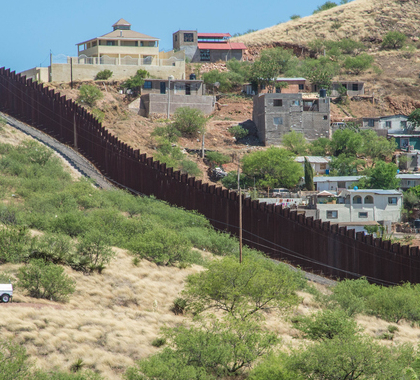The U.S. Supreme Court has rejected another challenge raised by environmental groups and civil liberties organizations to the Trump administration’s construction of a wall along the U.S.-Mexico border.
By a vote of five to four, the Supreme Court ruled the federal government can continue transferring money from lower priority Department of Defense (DOD) programs to continue working on the multi-billion dollar border wall.
First Challenge Fails
The Supreme Court’s ruling should not come as a surprise, as it came to the same conclusion in a challenge raised in Trump v. Sierra Club in 2019 over border wall construction.
The earlier iteration of the case reached the Supreme Court after a lower federal court blocked the Trump administration’s transfer of $2.5 billion Congress had appropriated for military pay, training, and other personnel-related matters to border wall construction in 2019.
The Trump administration argued it was allowed shift funds under a statute permitting the Secretary of Defense to transfer military funds “for higher priority items, based on unforeseen military requirements.”
The lower court ruled the transfer was illegal because there was nothing “unforeseen” about the Trump’s effort to build the border wall, as he campaigned on plans to build it since 2015, and in late 2018 and early 2019, the President even shut down much of the federal government due to a disagreement over how much money should be appropriated to pay for the wall.
As a result, the lower court found Congress specifically decided not to provide most of the funding Trump requested for the border wall.
In a July 2019 order staying the lower court’s ruling, a majority of the Supreme Court concluded the particular plaintiffs in the case likely lacked legal standing to challenge the transfer of funds.
“The Government has made a sufficient showing at this stage that the plaintiffs have no cause of action to obtain review of the Acting Secretary’s compliance with Section 8005,” the majority opinion stated.
Case Ongoing for Now
Although it left the Sierra Club scrambling to find potential plaintiffs with legal standing to challenge the fund diversion, the Supreme Court’s 2019 ruling did leave the case open while it continues its way through the federal court system.
The Supreme Court’s July 31, 2020 ruling simply denied a request by the Sierra Club and its co-plaintiff, the America Civil Liberties Union (ACLU), to lift its stay on the lower court’s ruling, blocking the funding transfer until the appellate court determines whether the Sierra Club and the ACLU do have legal standing to sue. Because of the Supreme Court’s 2019 ruling, only after the appellate court rules on the standing issue can the federal court system address the substantive challenge—the legality of the transfer of DOD funds for border wall construction—raised by the plaintiffs.
The Supreme Court’s decision not to lift its stay means the Trump administration can continue to spend funds on border wall construction.
H. Sterling Burnett, Ph.D. (hsburnett@heartland.org) is a senior fellow at The Heartland Institute.


























